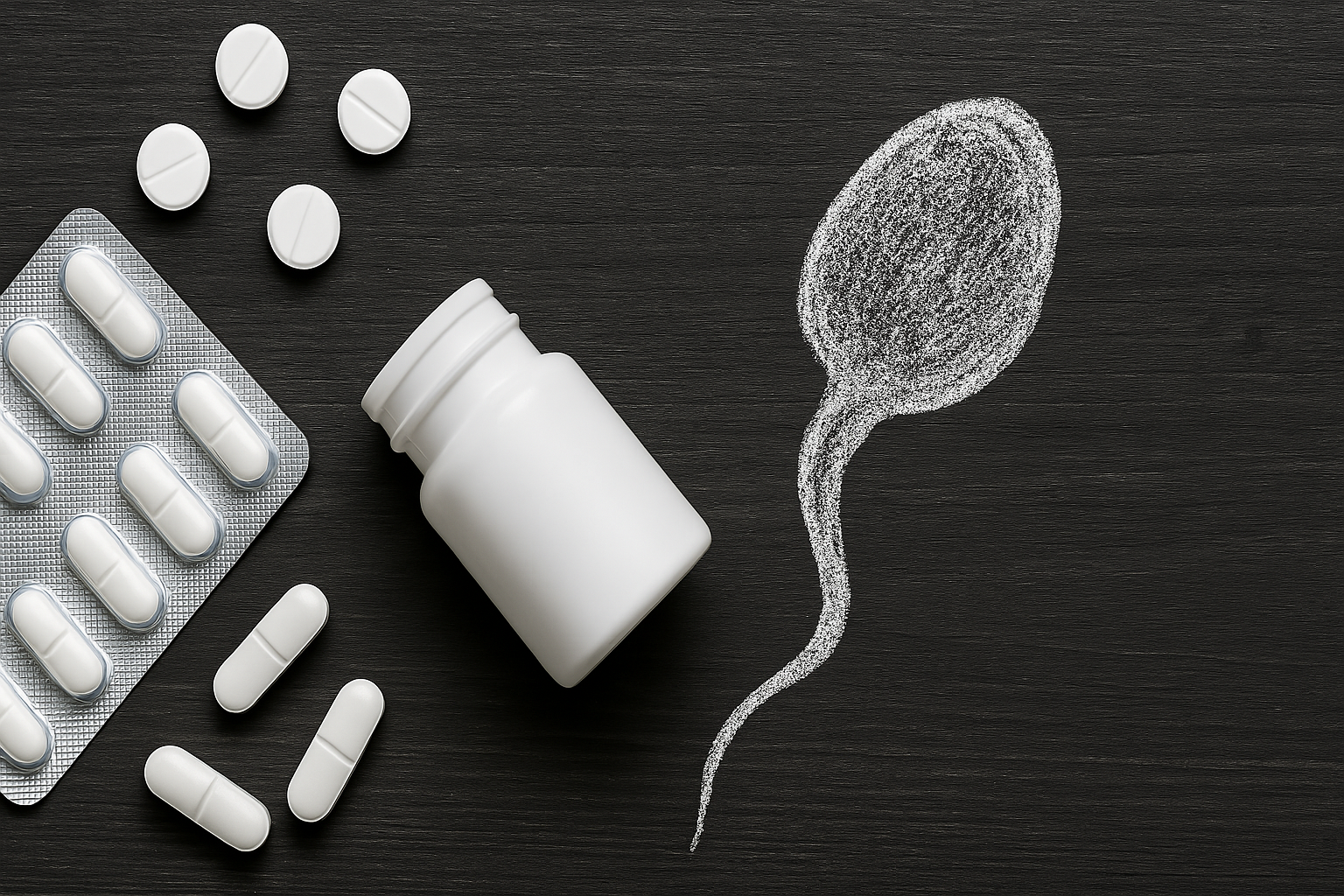
The number of couples unable to conceive a child is rapidly increasing in the world. Scientists are sounding the alarm: over the past 50 years, the average sperm count in men has decreased by more than 60%. And the trend is not stopping – every year the losses are only accelerating. According to the Daily Mail, by 2045 the average sperm count in men may drop to almost zero. If this continues, most couples will be forced to resort to artificial insemination, writes IZ.
Content
- What is the reason? Paracetamol is under suspicion
- The danger begins in the womb
- Evidence from laboratories and from life
- Can everything be changed?
- True story: “I would give anything to be a father”
- What else harms sperm?
- How to protect your fertility now
What is the reason? Paracetamol is under suspicion
One reason is the common painkiller paracetamol , which is taken by millions of people around the world. New research suggests that it may be damaging to the male reproductive system. Scientists have found that paracetamol — especially when combined with other chemicals — can act as an endocrine disruptor: disrupting hormonal balance, reducing testosterone production and negatively affecting sperm quality.
The danger begins in the womb
The scariest thing is that paracetamol is dangerous not only for adult men, but also for future ones. If a pregnant woman uses paracetamol in the first trimester, it can harm the development of the genitals in the fetus – in particular, reduce the production of testosterone in a boy. In adulthood, this manifests itself in infertility or even the risk of developing testicular cancer.
Evidence from laboratories and from life
In experiments on mice transplanted with human fetal testicular tissue, paracetamol dramatically reduced the production of the male hormone. And a study conducted in Denmark found that 100% of men had traces of paracetamol in their urine that exceeded safe levels. Together with other toxins, this creates a constant harmful environment in the body.
Can everything be changed?
Yes. The good news is that some of the changes are reversible. Men produce new sperm every 3 months. This means that with the right lifestyle and eliminating toxins, you can improve the quality of your sperm. Professor Shanna Swan, who first started to sound the alarm about this phenomenon, claims that avoiding scented hygiene products, reducing contact with plastic, and eating a healthy diet – all of this really helps.
True story: “I would give anything to be a father”
Megan and Ryan Lamour from Northern Ireland had been trying to conceive for more than two years. When they took tests, it turned out that Ryan had an extremely low sperm count, giving him only a 0.5% chance of conceiving naturally. The man doesn't drink alcohol and leads a healthy lifestyle, but the cause of the problems remained unclear. They began treatment and are now on their third attempt at IVF.
Ryan admits: “I feel guilty because it’s my problem. All my strength is to give Megan a chance to become a mother.”
What else harms sperm?
In addition to paracetamol, other medications can cause problems, including ibuprofen . Excess weight, chronic stress, and a sedentary lifestyle also negatively affect hormonal balance and sperm quality.
However, not all scientists agree with the theory about toxins. Some believe that the main reason is later fatherhood. After all, as men age, they have fewer sperm, and their quality is lower. But this logic cannot be applied to animals, which also show a decline in fertility. They do not plan families later – so the problem is deeper.
How to protect your fertility now
- Reduce or completely avoid taking paracetamol unless it is critical.
- Eliminate plastic from everyday life, especially in food
- Use fragrance-free hygiene products
- Monitor weight and physical activity
- It's not too late to plan for parenthood.
This is not panic – this is science. And each of us has a chance to influence our future. Because even the simplest changes can restore fertility.
As a reminder, we previously wrote about how a week of swimming in cold water changes the body at the cellular level.
